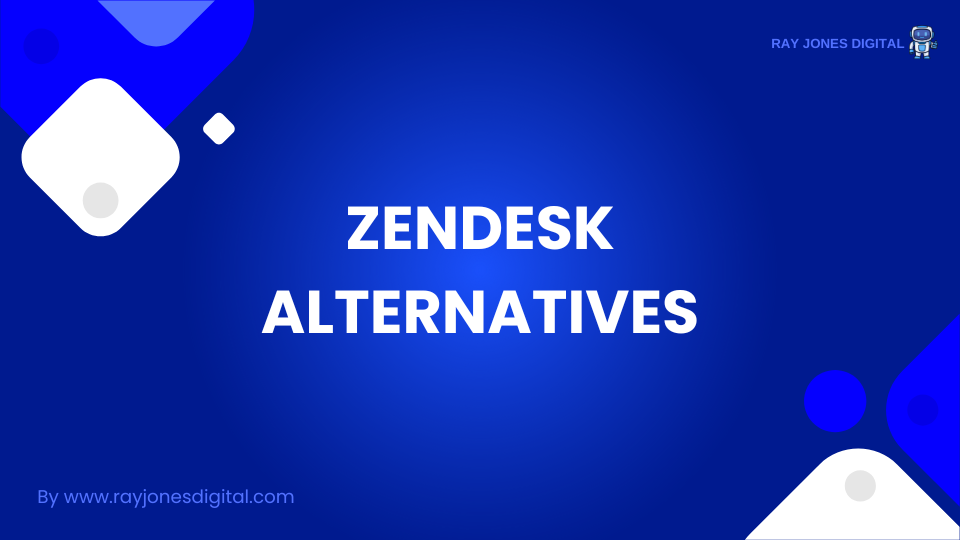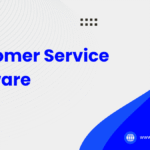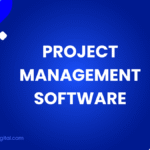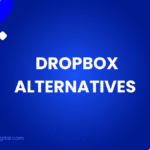
Zendesk has long been the go-to choice for customer service teams worldwide. But with rising costs and complex pricing tiers, many businesses are searching for alternatives that offer similar functionality without breaking the bank. Zendesk Alternatives.
If you’re tired of paying premium prices for features you don’t need, you’re not alone. The customer service software market has exploded with innovative solutions that challenge Zendesk’s dominance. These alternatives often provide better value, more intuitive interfaces, and pricing structures that actually make sense for growing businesses.
This guide explores seven top-rated Zendesk alternatives that could transform your customer service operations while keeping your budget intact. We’ll examine each platform’s strengths, pricing models, and unique features to help you make an informed decision.
Why Consider Zendesk Alternatives?
Zendesk’s pricing structure has become increasingly complex over the years. What starts as an affordable solution often escalates quickly once you factor in essential add-ons, advanced features, and user scaling. Many businesses find themselves paying for enterprise-level functionality they’ll never use.
Beyond cost considerations, several factors drive companies to explore alternatives:
Limited customisation options can frustrate teams with specific workflow requirements. Zendesk’s rigid structure doesn’t always align with unique business processes.
Steep learning curves slow down team adoption. Many alternatives offer more intuitive interfaces that require less training time.
Integration limitations become apparent as businesses grow. While Zendesk offers integrations, they’re often limited or require additional fees.
Poor mobile experience affects teams who need to respond to customers on the go. Several alternatives have invested heavily in mobile-first designs.
Top 7 Zendesk Alternatives for 2026
1. Freshdesk
Freshdesk has emerged as a serious contender in the customer service space, offering a clean interface and robust feature set at competitive prices. The platform excels at ticket management while providing automation tools that rival Zendesk’s capabilities.
Key Features:
- Multi-channel support (email, phone, chat, social media)
- Advanced automation and workflow rules
- Knowledge base builder with SEO optimisation
- Team collaboration tools
- Comprehensive reporting and analytics
Pricing: Freshdesk’s pricing starts significantly lower than Zendesk, with a free tier for up to 10 agents. Paid plans begin at reasonable rates and scale predictably based on agent count.
Best For: Small to medium-sized businesses looking for an all-in-one solution without the complexity of enterprise software.
2. Help Scout
Help Scout takes a refreshingly simple approach to customer service software. The platform feels more like email than traditional helpdesk software, making it incredibly easy for teams to adopt.
Key Features:
- Shared inbox that feels like personal email
- Built-in knowledge base
- Customer satisfaction surveys
- Detailed reporting on team performance
- Mobile apps for iOS and Android
Pricing: Help Scout offers transparent pricing with no hidden fees. Plans are based on user count with clear feature distinctions between tiers.
Best For: Teams that prefer simplicity over complexity and want to maintain a personal touch in customer interactions.
3. Intercom
Intercom has positioned itself as a customer messaging platform rather than just a helpdesk tool. This approach makes it particularly effective for businesses focused on proactive customer engagement.
Key Features:
- Live chat and messaging
- Automated chatbots
- Customer segmentation
- In-app messaging
- Product tours and onboarding flows
Pricing: Intercom’s pricing can be complex, with different products for different use cases. However, many businesses find the ROI justifies the investment.
Best For: SaaS companies and businesses that want to blend customer support with marketing and sales activities.
4. Zoho Desk
Zoho Desk benefits from being part of the larger Zoho ecosystem, offering seamless integration with CRM, project management, and other business tools. This makes it an attractive option for businesses already using Zoho products.
Key Features:
- Multi-channel ticket management
- AI-powered assistant (Zia)
- Custom workflows and automation
- Time tracking and SLA management
- Integration with 40+ Zoho applications
Pricing: Zoho Desk offers competitive pricing with a free tier and affordable paid plans. The real value comes from ecosystem integration savings.
Best For: Businesses already using Zoho products or those looking for tight integration between customer service and other business functions.
5. Kayako
Kayako focuses on providing context-rich customer conversations by bringing together all customer interactions in one unified timeline. This approach helps agents understand customer history without jumping between different tools.
Key Features:
- Unified customer timeline
- Live chat and help desk integration
- Customer effort score tracking
- Advanced search capabilities
- Mobile-responsive interface
Pricing: Kayako offers straightforward per-agent pricing with no setup fees or long-term contracts required.
Best For: Businesses that prioritise customer context and want to eliminate the friction of switching between different communication channels.
6. Groove
Groove positions itself as a simple, powerful alternative to complex helpdesk systems. The platform focuses on core customer service functionality without unnecessary bells and whistles.
Key Features:
- Shared inbox for team collaboration
- Knowledge base with customisation options
- Collision detection to prevent duplicate responses
- Detailed analytics and reporting
- Integrations with popular business tools
Pricing: Groove offers competitive pricing with a focus on simplicity. No complex tiers or confusing add-ons.
Best For: Small businesses and startups that want professional customer service capabilities without enterprise complexity.
7. Hubspot Service Hub
HubSpot Service Hub leverages the company’s expertise in inbound marketing and sales to create a customer service platform that aligns with modern customer expectations. The platform excels at connecting customer service data with marketing and sales insights.
Key Features:
- Ticketing system with smart routing
- Knowledge base with SEO tools
- Customer feedback surveys
- Live chat and chatbots
- Integration with HubSpot CRM
Pricing: HubSpot offers a free tier with basic functionality, with paid plans that scale based on features rather than just user count.
Best For: Businesses that want to align customer service with marketing and sales efforts, particularly those already using HubSpot tools.
Key Factors to Consider When Choosing
Pricing Structure
Look beyond the headline price. Consider how costs will scale as your team grows. Some platforms charge per agent, others per feature, and some use hybrid models. Calculate your total cost of ownership over 12-24 months.
Integration Capabilities
Your customer service platform shouldn’t exist in isolation. Ensure your chosen alternative integrates well with your existing tools, including CRM systems, project management software, and communication platforms.
Customisation Flexibility
Every business has unique processes. Look for platforms that can adapt to your workflows rather than forcing you to change established procedures.
Mobile Experience
Customer service doesn’t stop when your team leaves the office. Evaluate mobile apps and responsive design to ensure your team can provide excellent service from anywhere.
Reporting and Analytics
Data-driven decisions require good data. Look for platforms that offer comprehensive reporting on team performance, customer satisfaction, and operational efficiency.
Making the Switch: Migration Tips
Switching customer service platforms requires careful planning. Start by auditing your current setup, including active tickets, knowledge base content, and customer data. Most alternatives offer migration assistance, but having a clear inventory helps ensure nothing falls through the cracks.
Plan your transition during a quieter period if possible. Train your team on the new platform before going live, and consider running both systems in parallel for a short period to ensure continuity.
Don’t forget to update your customer-facing communications. Email signatures, website contact information, and any automated responses should reflect your new platform.
The Future of Customer Service Software
The customer service software landscape continues evolving rapidly. Artificial intelligence, machine learning, and automation are becoming standard features rather than premium add-ons. Many Zendesk alternatives are leading this charge, offering advanced capabilities at more accessible price points.
Voice technology integration is becoming more sophisticated, with platforms offering natural language processing and sentiment analysis. Video support is also gaining traction as customers increasingly expect face-to-face interactions for complex issues.
Consider not just your current needs but where your business is heading. Choose a platform that can grow with you and adapt to emerging customer service trends.
Transform Your Customer Service Today
The customer service software market offers more choice than ever before. While Zendesk remains a solid option, these seven alternatives prove that excellent customer service doesn’t require premium pricing or complex feature sets.
Each platform brings unique strengths to the table. Freshdesk offers comprehensive functionality at competitive prices. Help Scout provides simplicity without sacrificing power. Intercom excels at proactive customer engagement. The right choice depends on your specific needs, budget, and growth plans.

I am Ray Jones Digital
My current occupations: a Digital Marketer, Local SEO expert, Link Builder, and WordPress SEO specialist. Shopify SEO, Ecommerce Store Management, and HTML & WordPress Developer I have been practicing the above mentioned services for more than 10 years now As an SEO expert working with your ongoing projects.



